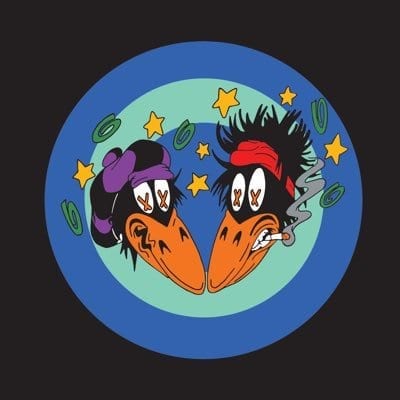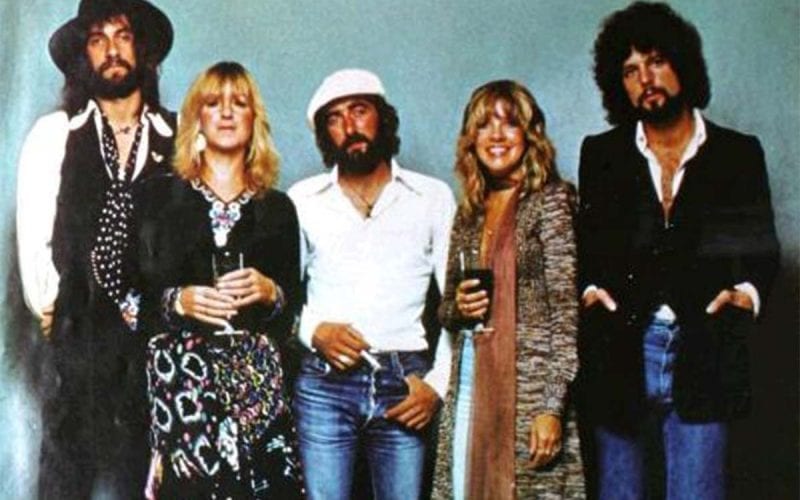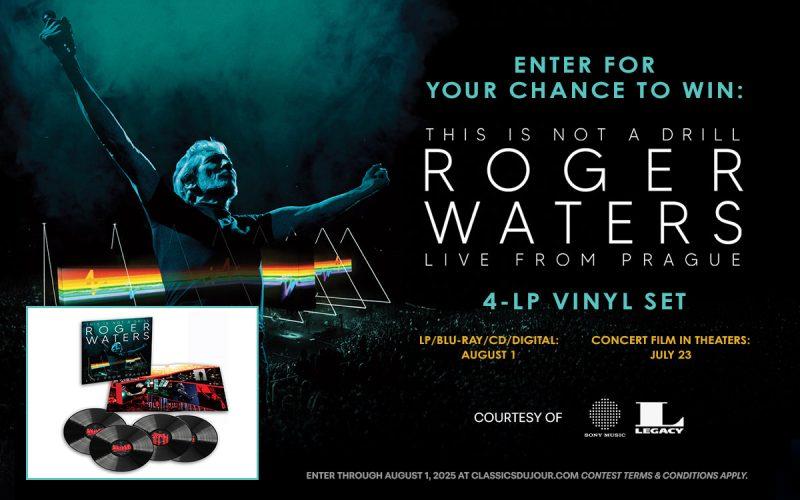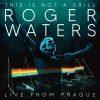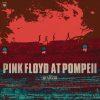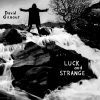
“I’m not denying that I was in that band for 24 years. That’s a huge portion of my life’s work. I’m not shunning it and I’m not turning away from it and pretending that it didn’t happen. That’s music I’m proud of.”
That’s Rich Robinson talking about his nearly quarter of a century stint in The Black Crowes alongside his brother, Chris. As proud as Robinson is of his years in the Crowes, he’s equally open about the sibling rivalry and rancor that plagued the band of brothers. Is he glad that The Black Crowes are seemingly in the rearview mirror for good? Is he sorry the band’s demise occurred the way it did? Who knows. Who cares. What really matters is that Robinson is forging onward with a new band, album and tour.
Robinson’s current collective of master musicians is known as The Magpie Salute and their self-titled ten-track album will arrive this Friday, June 9. The record signals the recording reunion of Robinson and former Black Crowes cohorts Marc Ford, Sven Pippin and, sadly now, the late Eddie Harsch, who passed away last November at the age of 59. What follows is my frank – and fun – conversation with Robinson about the rather unconventional making of The Magpie Salute and the unit’s upcoming North American tour, which is set to get underway July 26 in Indianapolis.
Hi Rich, how are you?
RR: Pretty good, how you doing?
I’m doing well. Good to talk to you again. Let’s jump right into this here, and I want to begin with this: pun intended, every song on the self-titled album was recorded in front of a live audience, with the omission of the lead single “Omission.” Why was that the case?
RR: Well, to give you some background, what had happened was I was on tour supporting my solo record Flux (2016), and I’d recorded at this studio (Applehead Recordings, Woodstock, NY) a bunch. And so, they do this thing loosely based on how the Crowes recorded their last new record, where we invited a live audience to witness us basically record a new record and play the new songs. And it was a cool idea so, we did this thing. And so I said, I’ll do it again if I can do something different. So, I decided to ask some guests up. Marc Ford is one of my favorite guitar players of all time. I loved playing with him. I loved what he brought to my music, so I just thought, well, f**k it, I’m gonna reach out and see if Marc will come, and he came out and it was great. And then I thought I might as well invite one of my other favorite musicians, Eddie Harsch, and he came down. The four of us with (bassist) Sven…and it was just this really cool thing. It was a very special weekend for a lot of reasons. We were able to get together and play and enjoy being together. And also, be together without my brother being in the room kinda filtering the way that things are. My brother would always be in a room and basically set the pace and sort of dictate how things went. And so, it was three days. We played a ton of music. It was always great. It was always positive.
Yeah, well I was gonna say that after listening to the record a few times I thought, it’s a great homecoming with all you guys. And of course, Eddie, may he rest in peace. I wanted to ask you – sticking with the home theme here for a second – tell me about the writing of track three, “What is Home?,” which I think Eddie’s keyboards certainly lay a great foundation for that song.
RR: Well, that was one I wrote for the last Crowes record (2008s Before the Frost…Until the Freeze). But I’d written it in a more rock and roll kind of way, as the intro suggests. When it came down to the Crowes it turned into a more of an acoustic thing. It was one of the couple of songs that I just wrote on that record by myself without Chris. And so, when it came down to it, I did the way that I’d originally written it. It had a really cool intro and had the whole band play through the whole thing. Everyone brought different things at different times. I was really happy with the overall theme of it.
Speaking of different times, why did you decide to turn back the clock and revisit the (1994) Amorica track “Wiser Time?”
RR: Well, I mean, look, it’s a song that I sang on on the original record and a song I wrote. I thought it was great. It was a song that Marc and I played our solos together on on the original record, and since he was there I thought it’d be really cool. And also Eddie’s solo. I mean that just seemed to be an obvious choice that was just screaming out for us to all play on.
Yeah, I agree. We’ll jump back into the record in a second, but first let me take you back further in time and ask you a question that I often do in these conversations, and that would be about your proverbial Beatles of Ed Sullivan moment. Did you have one of those moments, where, looking back now, you remember a song that came on the radio, or an album that you had, or a concert that you went to, where you knew that music was going to play as important a role in your life as it obviously has?
RR: I mean I grew up listening to music and it always meant so much to me. Some of my earliest memories are of my dad playing Sly & The Family Stone or Joe Cocker. And those album covers. I remember the stereo. It was one of those big console stereos from the early 70s.
I remember those, too!
RR: Yeah, it was really cool, and I just remember listening to all of my favorite stuff. One of my favorite things – even back then – I remember was Stephen Stills and Crosby, Stills, Nash & Young. Dad had Déjà vu and he used to listen to “Carry On” pretty much every day. And I just remember loving it. And so, growing up with all of that, and the appreciation he had for music, what he showed me about music when I was growing up, I just started watching his appreciation and I guess that was my moment. Music was always a part of me, and it always took me somewhere. There was an escapism in music when things were going kinda s**ty. Music would always be there for you. And I always tended to use music to relate to whatever issue was going on.
Amen, brother!
RR: And all of the amazing (musical) phases that one goes through – or at least that I would go through. Starting out with listening to Sgt. Pepper’s Lonely Hearts Club Band and The Who and Mose Allison and Joe Cocker and Sly & the Family Stone, and then breaking off on our own when we were kids. Like seeing (AC/DC guitarist) Angus (Young) for the first time as a ten-year-old, which was unbelievable! And then growing up in Atlanta, and you shift – your tastes change. I remember hearing R.E.M.’s “Radio Free Europe” on 96 Rock. It really affected me on a profound level.
Music is medicine. It soothes the soul, and puts you in a certain mood, or fixes something that’s ailing you. So, jumping back into the record and the new band, The Magpie Salute. Tell me if I’m wrong here, Rich, but on the surface the band’s name and album title appears to be a thinly veiled nod to The Black Crowes. Am I off base there?
RR: No, I mean, it’s in the crow family. I mean I’m not denying that I was in that band for 24 years. That was a gift. A lot of bands don’t get to do that. That was amazing. These musicians that I’m playing with that were all integral in making those records, I’m very proud of and I’m happy to be playing with them. And “Omission” is a song that is pushing us forward. I thought it was a perfect song for this band to launch off of. And we’re gonna make a double album at the beginning of next year of all new music. This is the beginning of something. It came about very organically. It’s growing organically. We’re just gonna keep going.
That’s great news to hear! A lot more to come. I do want to ask you about a couple of other tracks on the record before we wrap here, Rich. So, as a certified, longtime Faces fanatic, I was anxiously awaiting getting to track 9 on the album, your take on the great Faces number “Glad and Sorry,” off, arguably, the best Faces record, 1973s Ooh La La. What was it about this tune that made you want to add your flavor to it?
RR: Marc and I used to do it in 2005, and obviously growing up loving The Faces as well. I love the vulnerability of (Faces bassist/singer/songwriter) Ronnie Lane and his songs and the way he sings. And I just thought it was great for us to do.
It turned out fantastic. The record wraps with your seven-minute-plus treatment of the Bob Marley tune “Time Will Tell,” originally found on his Kaya album and later covered by the Crowes on (1992s) The Southern Harmony and Musical Companion. Hopefully, I’ll be the one out of 99 people that you talk to, Rich, that won’t ask you about the possibility of a Crowes reunion. Instead, these lines in the Marley song, “You think you are in Heaven, but you living in hell/Back them up, oh, not the brothers/But the ones who set them up,” prompted me to ask this question: what percentage of the time you spent in the Crowes with your brother Chris was heaven versus hell?
RR: You know, there are few moments – really just a few moments – that were great, which is unfortunate because there should’ve been so many. A lot of times there was just, sort of, ego and pettiness that got involved and kind of made it not cool for all of us. And also, it was a sliding scale. I mean at the beginning I feel like there was obviously struggle making the record, writing the record. But I feel like we got to this point where it started becoming very successful. We started feeling very happy, and really as a group, enjoyed what we were accomplishing. I mean it was a huge undertaking. We went out and the first tour was 22 months and 350 shows, and we became a great band on that tour. And so, there were a lot of times where we could experience that positivity. And then, once we hit that success and everyone kind of splintered off. We made Southern Harmony, which is a great record, but then it started turning dark pretty quickly. So, almost like a sliding scale, from then on there was far less good times and way more overly stressful bulls**t and anger. It was just not good. There would be a few moments of respite from that, but it just became worse and worse over the years.
Well, as they say, you don’t get to choose your family, right?
RR: Yeah. It’s a bummer. Ultimately, everyone comes to earth with their own set of issues. And everyone comes to earth on a path. Environment has something to do with it, but ultimately your soul is your soul, and you’re gonna go where you’re gonna go. That’s true for friends and family. So, ultimately that’s the way it is, and it is a bummer.
Yep. Let me wrap by mentioning the tour, which begins July 26. What can fans expect from the tour?
RR: Well, we’ll be digging deep into the Crowes catalog. Half the set is Crowes songs. Half the set is cover tunes and my solo stuff and Marc’s solo stuff. It’s been great so far. The sets flow really well and it’s been a lot of fun. We’re excited.
Sounds like it’s gonna be a fun night. Looking forward to it, for sure. Rich, thank you for your time and save travels on the road, and thanks for this great record.
RR: Thank you, man, I appreciate it. Bye.

